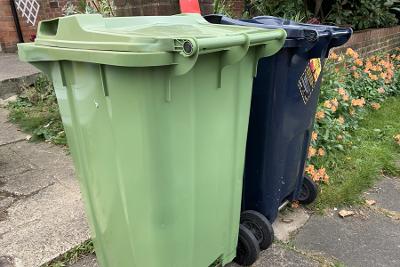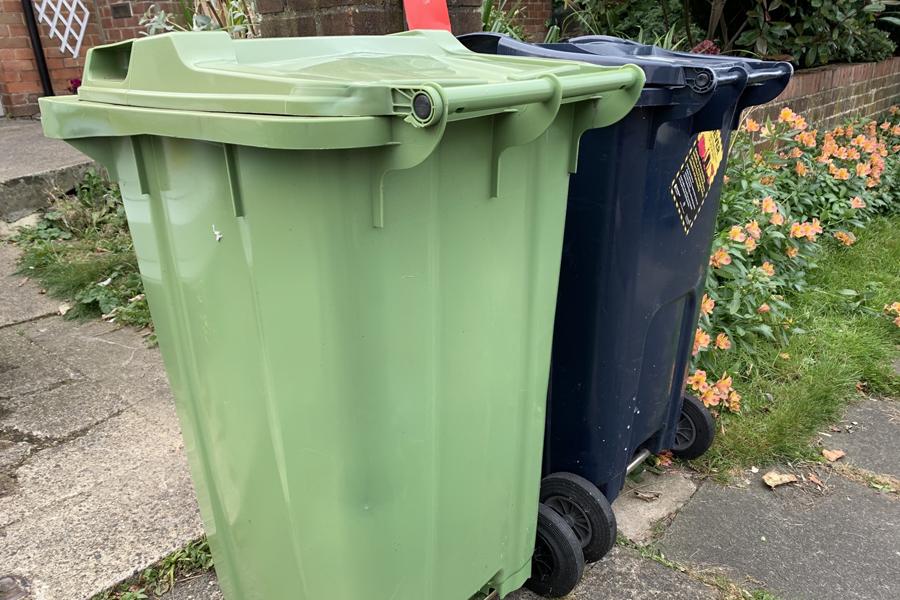Contaminated recycling bins will not be emptied

Continue to put non-recyclable materials in your recycling bin, and we will refuse to empty them. This is the message we are regrettably being forced to share with residents as contamination levels in recycling bins reach unprecedented levels - over 20% of all materials collected.
Councillor Linda Green, Chair of the South Tyne and Wear Waste Management partnership, said:
"Despite frequent reminders or what we can and can't recycle, every week we are finding more and more contaminants in recycling bins, including food waste, liquids, dirty and greasy food packaging, black bags and carrier bags, gardening waste, electrical items, and even soiled nappies. Also, keep the lids of your bins closed at all time, as any moisture can ruin otherwise perfectly recyclable materials.
"While most people recycle responsibly, for which we are grateful, some for whatever reason aren't getting it right, and it is rendering whole bin loads, and even entire lorry loads of recyclable materials unusable. It is also costing us a lot of money that could be better spent elsewhere. This is unacceptable and we can't tolerate it any longer.
"From now on, we will be checking bins prior to emptying, and if we find obvious contaminants, we have instructed our collection crews not to empty them, and instead will apply a tag to your bin advising you to remove the contaminant and dispose of it correctly before it will be emptied."
Top tips for recycling right
- Check our A to Z of recycling for a comprehensive list of items that can and cannot be placed in your recycling bin.
- If in doubt, leave it out - if you are unsure if an item can be placed in your recycling bin, leave it out or place household waste bin.
- Wash and squash - rinse food waste from containers and bottles, and fold any cardboard.
- Arrange a bulky waste collection of any larger items that won't fit in your bin.

Continue to put non-recyclable materials in your recycling bin, and we will refuse to empty them. This is the message we are regrettably being forced to share with residents as contamination levels in recycling bins reach unprecedented levels - over 20% of all materials collected.
Councillor Linda Green, Chair of the South Tyne and Wear Waste Management partnership, said:
"Despite frequent reminders or what we can and can't recycle, every week we are finding more and more contaminants in recycling bins, including food waste, liquids, dirty and greasy food packaging, black bags and carrier bags, gardening waste, electrical items, and even soiled nappies. Also, keep the lids of your bins closed at all time, as any moisture can ruin otherwise perfectly recyclable materials.
"While most people recycle responsibly, for which we are grateful, some for whatever reason aren't getting it right, and it is rendering whole bin loads, and even entire lorry loads of recyclable materials unusable. It is also costing us a lot of money that could be better spent elsewhere. This is unacceptable and we can't tolerate it any longer.
"From now on, we will be checking bins prior to emptying, and if we find obvious contaminants, we have instructed our collection crews not to empty them, and instead will apply a tag to your bin advising you to remove the contaminant and dispose of it correctly before it will be emptied."
Top tips for recycling right
- Check our A to Z of recycling for a comprehensive list of items that can and cannot be placed in your recycling bin.
- If in doubt, leave it out - if you are unsure if an item can be placed in your recycling bin, leave it out or place household waste bin.
- Wash and squash - rinse food waste from containers and bottles, and fold any cardboard.
- Arrange a bulky waste collection of any larger items that won't fit in your bin.
